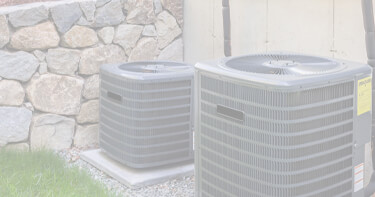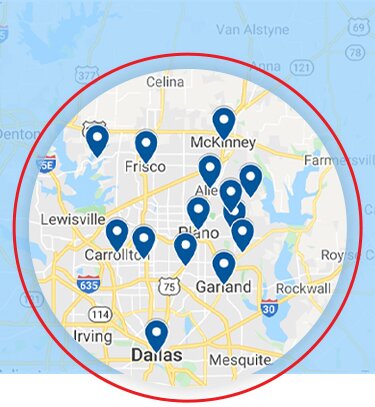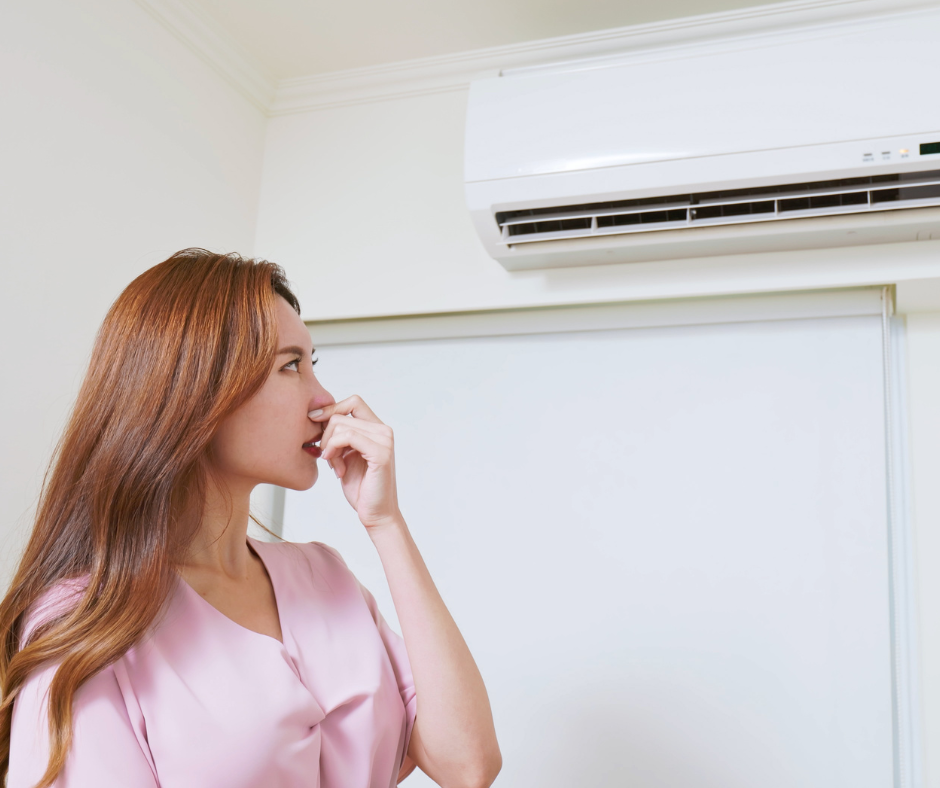
Why Does My House Smell Musty?
What’s That Smell?
As the seasons change and Dallas families turn on their ACs for the first time, they may notice a slight musty odor coming from their unit. This is normal and should resolve on its own after the system runs for a few minutes.
However, persistent moldy, mildewy odors that don’t dissipate on their own could point to more serious issues that can have dire consequences for your indoor air quality, comfort, and health.
In this blog post, the HVAC experts at Total Air explain why you may have a musty odor in your home, the health concerns that mildew and mold growth can cause, and some DIY tricks you can try to resolve the issue yourself before calling a professional.
What’s Causing the Musty Odor in My House?
A musty odor in your home usually indicates mold or mildew growth, which is commonly caused by excess moisture and high humidity. With an average daily humidity of 60% to 70%, Dallas families are no strangers to extreme moisture in the air, making the threat of mold and mildew higher here than in other areas of the country.
In addition to high humidity, mold, and mildew are attracted to dark spaces, which is why it’s common for growth to develop in your ductwork.
Another potential breeding ground for mold and mildew can be your air conditioner’s condensate line, as this component regularly handles excess moisture and is inside your unit, where it’s dark. This could explain why there’s a musty odor when turning on your AC system.
Is Mildew or Mold Toxic To Breathe?
Mold and mildew can cause significant health issues for you and your family, especially for those who are already at risk for respiratory problems or have asthma.
Breathing mold and mildew spores can be toxic to these people, which is why it’s critical to invest in a comprehensive indoor air quality strategy to mitigate the risk of respiratory irritation and severe illness.
DIY Tricks To Try
While professional mold remediation is the only way to eliminate mold and mildew growth in your home, there are a few DIY techniques you can try to mitigate your risk and ensure cleaner, healthier indoor air. These include:
- Clean or replace your air filters: Clogged air filters combined with high moisture provide the perfect environment for mold and mildew growth. By cleaning or replacing your air filters regularly, you can prevent mold and mildew from growing in your AC.
- Use a dehumidifier: Maintaining ideal humidity levels indoors can help reduce the risk of mold and mildew growth by eliminating excess moisture. Installing a dehumidifier can help you keep your indoor humidity levels within the recommended range of 30% to 50%.
- Baking soda & vacuum: If the musty odor has permeated your carpet or upholstery, you can try to mitigate the smell by pouring baking soda on the surface, allowing it to sit for a few hours, then using a vacuum to suck up the residue.
When To Call a Professional
If you suspect mold or mildew has infiltrated your HVAC system, it’s always best to trust the hard work to a trained professional — especially if the problem is deep within your ductwork.
Anything beyond a quick filter change demands the attention of a skilled technician like those at Total Air. We offer a variety of indoor air quality solutions, from air purification and dehumidification to professional duct cleaning and AC maintenance.
Don’t let musty odors develop in your Dallas home — call 972-881-0020 to schedule indoor air quality services today.
a step above the rest
awards & community involvement
awards & community involvement
a step above the rest











